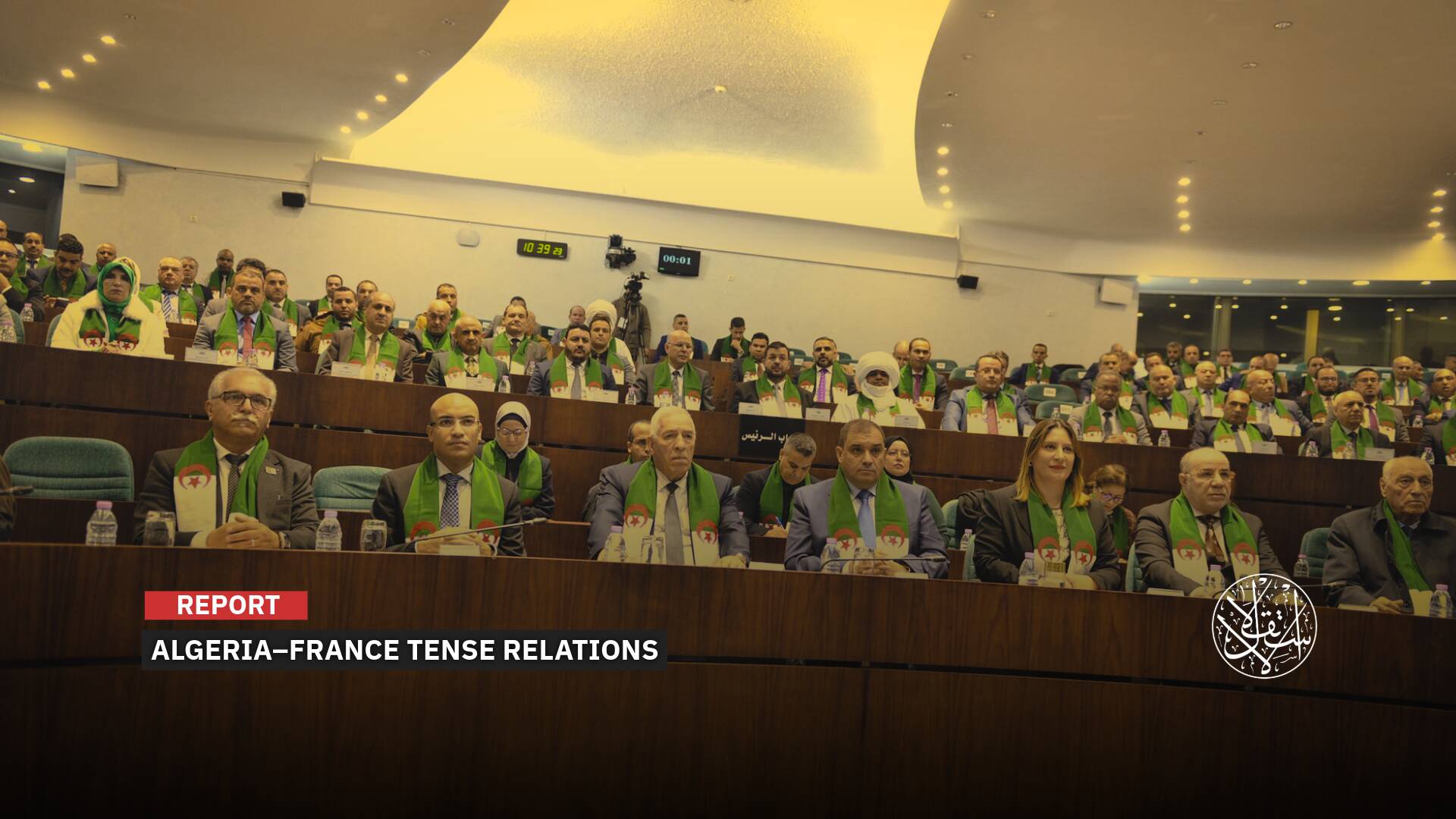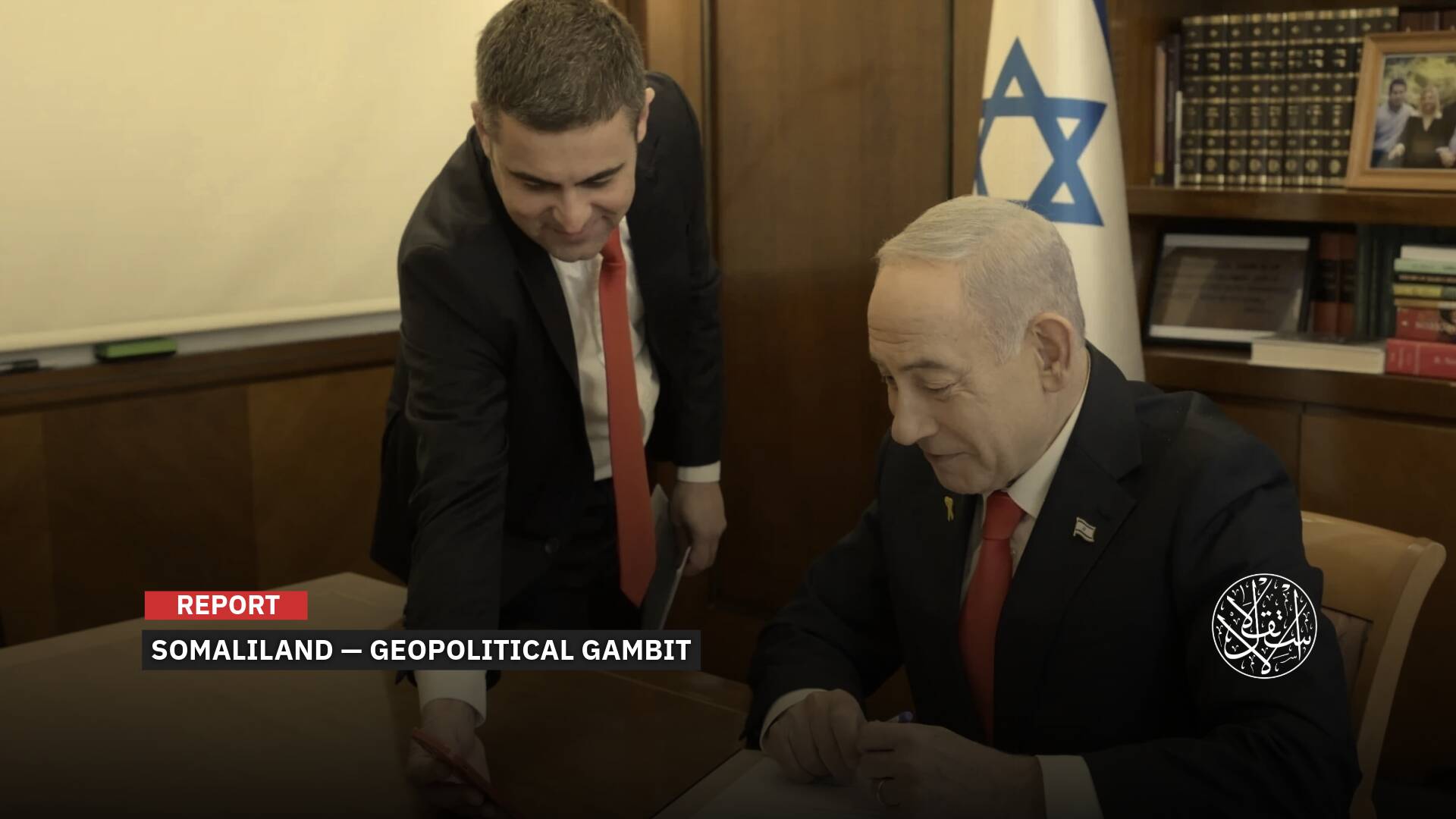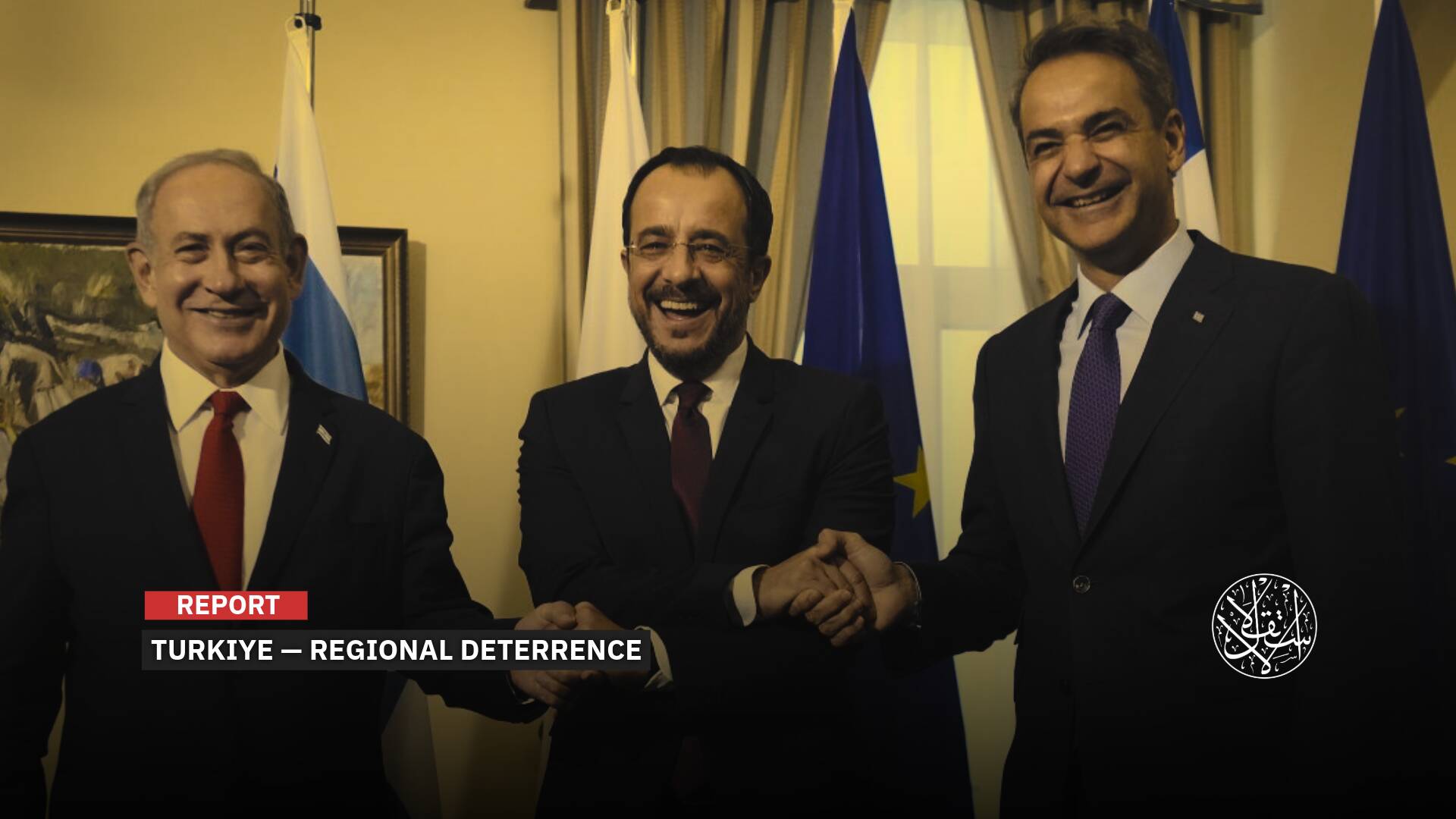Tears and Resignations: How the Gaza Deal Shook Israeli Government and Army

The deal with Hamas was clearly a win for Hamas and a loss for “Israel.”
As the ceasefire in Gaza took effect on January 19, 2025, “Israel” faced fresh turmoil with the resignation of several senior government officials and military leaders.
These resignations stemmed from two key factors: the failure to prevent Operation al-Aqsa Flood on October 7, 2023, and the government's decision to pursue a deal with Hamas.
The Israeli army’s inability to achieve its stated war goals—eliminating Hamas, recovering hostages without a prisoner exchange, and implementing controversial plans for displacement and resettlement in Gaza—further intensified the crisis. The failure to meet “these objectives” created significant tension within the government, leading to a wave of official resignations and strong reactions from key leaders.
Tears Over the Deal
On January 18, 2025, Israeli Army Radio reported “emotional scenes” during the cabinet session to approve the prisoner exchange deal. Several ministers, attendees, and even the government secretary were moved to tears during the discussions.
The following day, January 19, the right-wing Jewish Power Party, led by National Security Minister Itamar Ben-Gvir, announced the resignation of its leader and two other ministers from Benjamin Netanyahu's government. The move was a direct protest against the ceasefire agreement in Gaza.

Ben-Gvir had warned that his party would withdraw from the government if the prisoner exchange deal and Gaza ceasefire were approved.
Finance Minister Bezalel Smotrich, one of the most prominent far-right figures in the government, also voiced staunch opposition to the Gaza negotiations and the draft ceasefire agreement.
On January 13, Smotrich described the truce as a “catastrophe” for “Israel,” calling for a full-scale military occupation of Gaza. The agreement being negotiated “is a catastrophe for the state’s national security.”
“We will not be part of a surrender deal that would include releasing terrorists, stopping the war and dissolving the achievements that were bought with much blood, and abandoning many hostages,” he added.
After the agreement was finalized on January 19, Smotrich reiterated his criticism, labeling the deal as “terrible and disastrous, putting Israel at risk.” He even issued a direct warning to Prime Minister Benjamin Netanyahu, stating, “I will bring down the government if it does not return to fighting in a way that [leads to us] taking over the entire Gaza Strip and governing it.”
Speaking with Army Radio, the far-right minister said “Israel must occupy Gaza and create a temporary military government because there is no other way to defeat Hamas.”
Foreign Minister Gideon Sa’ar expressed his frustration with the agreement, noting that “Israel” had failed to achieve its objectives in the war, despite delivering “heavy blows to Hamas.”
Military Resignation
On the military front, Israeli Army Chief of Staff Herzi Halevi announced his resignation, taking responsibility for the failures during Hamas's October 7 assault.
In his resignation letter, which will take effect on March 6, 2025, Halevi wrote to War Minister Israel Katz, “On the morning of October 7, under my command, the IDF failed in its mission to protect Israel’s citizens.”
“The State of Israel paid a heavy and painful price—in lives lost, in hostages taken, and in those wounded both physically and emotionally.”

“My responsibility for this terrible failure accompanies me every day, every hour, and will remain with me for the rest of my life,” he said.
Israeli opposition leader Yair Lapid praised Halevi's resignation and called on Prime Minister Benjamin Netanyahu to follow suit. “Now, it is time for them to take responsibility and resign -- the prime minister and his entire catastrophic government,” Lapid said.
Halevi's resignation sparked a wave of further departures, including that of Yaron Finkelman, the commander of the Israeli Army’s Southern Command, who also submitted his resignation to the Chief of Staff. Brigadier General Yifat Yerushalmi, head of the military prosecution, also announced her resignation.
Prior to this, Israeli Military Intelligence Chief Aharon Haleva resigned, taking personal responsibility for the security failure that led to Operation al-Aqsa Flood.
Amid these resignations, there are growing speculations that more high-ranking officers in the military, security, and intelligence services will follow suit, including Air Force Commander Tomer Bar, Navy Commander David Saar, and Shin Bet Director Ronen Bar.
Criticism
Outside the government, criticism also surged from politicians and media figures. Former Israeli National Security Council Chairman Giora Eiland called the agreement a colossal and incomprehensible failure and said he could not believe what had happened.
Amit Halevi, a member of the Knesset Foreign and Security Committee, described the deal as bad, with a heavy price and dangerous consequences.
Israeli analyst Zvi Yehezkeli explained that the agreement involved significant concessions, without achieving the military objectives or making substantial gains on the ground.
Retired Israeli Reserve General Yiftah Ron-Tal in a fierce critique on Channel 14, lambasted Netanyahu’s government and military leaders, stating, “We are now seeing images from Gaza city, after the army entered several times, but it didn’t secure complete control, nor could it occupy that cursed city.”
“This must change, and indeed, it’s time to replace the military leadership.”
“This leadership is responsible for October 7, and the public expects it to hand over the keys to an alternative command, led by a new Chief of Staff who can rebuild the army,” he added.

Insulting Netanyahu
Another blow to the Israeli government was the way Prime Minister Netanyahu accepted the ceasefire agreement, which was seen as both an insult and a diplomatic defeat.
Steven Witkoff, the newly appointed Middle East envoy for President-elect Donald Trump, forced Netanyahu into agreeing to the deal.
Witkoff, as described by Newsweek, is a diplomatic envoy who does not speak the language of diplomacy.
“Witkoff did more in one meeting to influence Netanyahu than the Biden administration had achieved over the past year,” two Arab officials told The Times of Israel.
He forced Netanyahu to meet him on a Saturday, despite the Israeli leader’s attempts to delay the meeting until the following day. Whitkoff’s blunt response shocked Israeli aides, as he made it clear in harsh English that Saturday meant nothing to him.
In an unusual departure from protocol, Netanyahu went to his office to hold an official meeting with Whitkoff, who then returned to Qatar to finalize the deal.
Haaretz added further details, revealing that Whitkoff addressed Netanyahu with a few words, more like punches. The Israeli Prime Minister did not expect to be verbally berated by the American envoy.
While Hamas remained firm on its stance that the release of Israeli prisoners was conditional on the release of Palestinian detainees, Haaretz also pointed out that “the difficult part” of the deal, according to their sources, involved the complete Israeli withdrawal from Gaza.
Further, Israeli Channel 14 reported on January 16 that there were murmurs within government meetings, expressing disappointment with the agreement and saying, “Trump is not what we thought he was.”
Why Did ‘Israel’ Lose?
The answer to this question was provided by the Israelis themselves. On January 15, 2025, The Times of Israel published an article by Israeli lawyer and politician David Rees, titled “For the First Time, Israel Just Lost a War.”
“For ‘[60] years, Israel has been forced to fight war after war in order to defend itself. It won the wars in 1948, 1967, and 1973. It fought Hezbollah to a draw in 2006.”
“That has just changed. The peace deal it just cut with Hamas was clearly a win for Hamas and a loss for Israel. No wonder people in Gaza are cheering,” he added.
“This is what Hamas won in this war: It turned world opinion against Israel and negotiated the release of hundreds of Palestinian prisoners, many of whom have been sentenced to life terms.”
“While some of its leaders were killed, they will be replaced with new ones. While many of its fighters were killed, according to press reports, Hamas has been rebuilding its fighting wing, which now has 12,000 soldiers in Gaza,” the Israeli analyst explained.
“Hamas has proved that Israel is willing to give up huge amounts to get a small amount in return.”
“Hamas gets to claim proudly that the October 7, 2023 massacre brought about terrific results. In fact, Israel is weaker now than it was on October 6, 2023,” added Rees.
“Hamas will still control Gaza. UNRWA will remain as it has been. The war has created a serious rift between Israel and the United States.”
Tel Aviv has been enormous, with a sharp rise in Israel's national debt and significant damage to its economy.
Rees estimated that the Israeli economic activity had decreased by more than 20 percent and wrapped up his article saying, “What Israel has obtained that it did NOT have on October 6, 2023: Almost nothing.”
Sources
- For the first time, Israel just lost a war
- Who is Steve Witkoff? A Look At Central Figure to Gaza Ceasefire Deal
- Smotrich: Hostage deal would be ‘catastrophe for national security,’ says he won’t be part of it
- Smotrich says he’ll ‘bring down the government’ if Israel doesn’t occupy Gaza
- Israeli Foreign Minister Concedes Failure to Achieve Gaza War Objectives
- Hamas says Israel failed to achieve war goals in Gaza
- Israeli military chief of staff resigns over failure to prevent October 7 attack
- How Trump Pushed Netanyahu to Agree to Gaza Ceasefire
- This is how Trump's envoy forced Netanyahu to accept the ceasefire agreement [Arabic]









